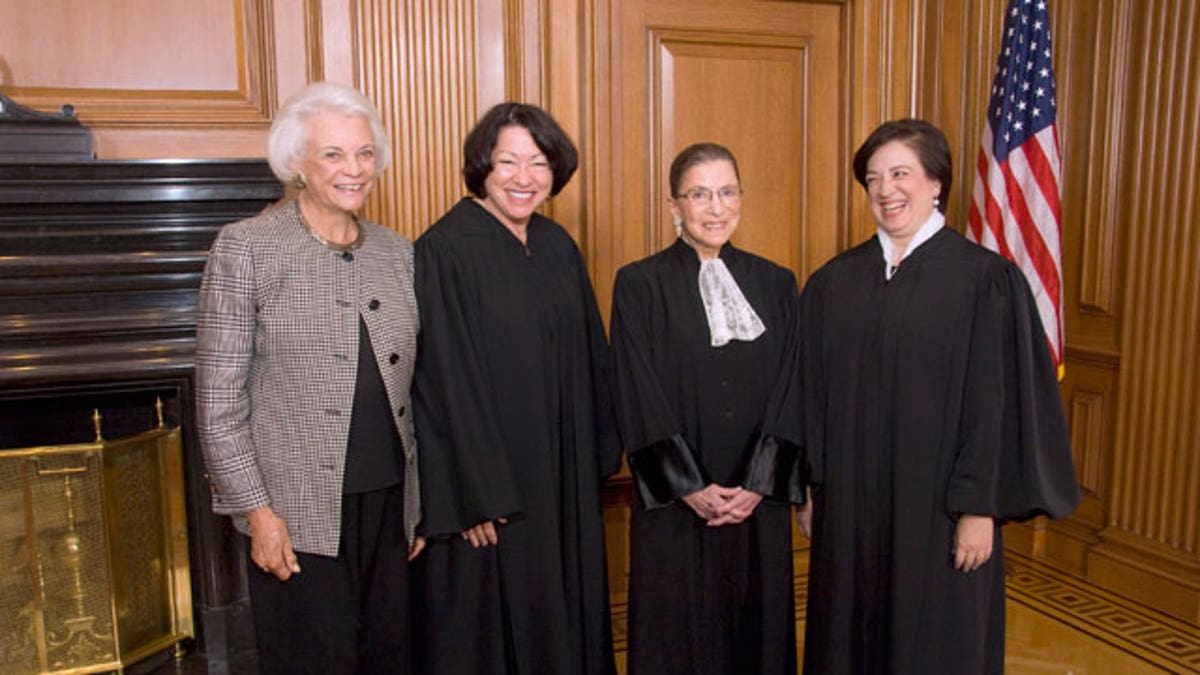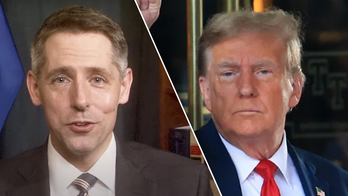
Retired Justice Sandra Day O'Connor, Justice Sonia Sotomayor, Justice Ruth Bader Ginsburg and Justice Elena Kagan in the Justices' Conference Room prior to Justice Kagan's Investiture, Friday, Oct. 1, 2010, at the court in Washington. (Steve Petteway, Collection of the Supreme Court of the United States)
The Supreme Court's newest justice, Elena Kagan, handed down her first opinion Tuesday, writing that a debtor cannot escape increased payments to his creditor under a complicated formula found in a 2005 bankruptcy law. Seven of the other eight justices agreed.
The case examined language in the Bankruptcy Abuse Prevention and Consumer Protection Act specifying the terms by which people in debt are to repay their obligations. The law allows for people to exclude or deduct $471 per month from their disposable income for car payments.
Jason Ransom filed for bankruptcy in 2006 after going more than $80,000 in debt. In following the law's means test for determining disposable income, and therefore how much he would have to pay his creditors, Ransom included the monthly $471 car deduction for a Toyota Camry he already owned.
The bankruptcy court hearing Ransom's case refused to go along with his payment plan, ruling that the deduction only applies to actual car payments.
That court ruled, and Kagan's decision Tuesday affirmed, that since Ransom owned his car outright he could not claim the ownership cost deduction. "Because Ransom owns his vehicle free and clear of any encumbrance, he incurs no expense in the 'Ownership Costs' category of the [law]," Kagan wrote.
Justice Antonin Scalia was the only justice in dissent arguing that a debtor ought to be able to factor in the ownership cost allowance when calculating monthly installment payments to his creditor.
The disagreement between Scalia and the rest of the court focused on the application of the word "applicable" in the language of the law.
"The canon against superfluity is not a canon against verbosity," Scalia wrote believing the court's majority misinterpreted the statute's language. "When a thought could have been expressed more concisely, one does not always have to cast about for some additional meaning to the word or phrase that could have been dispensed with."




